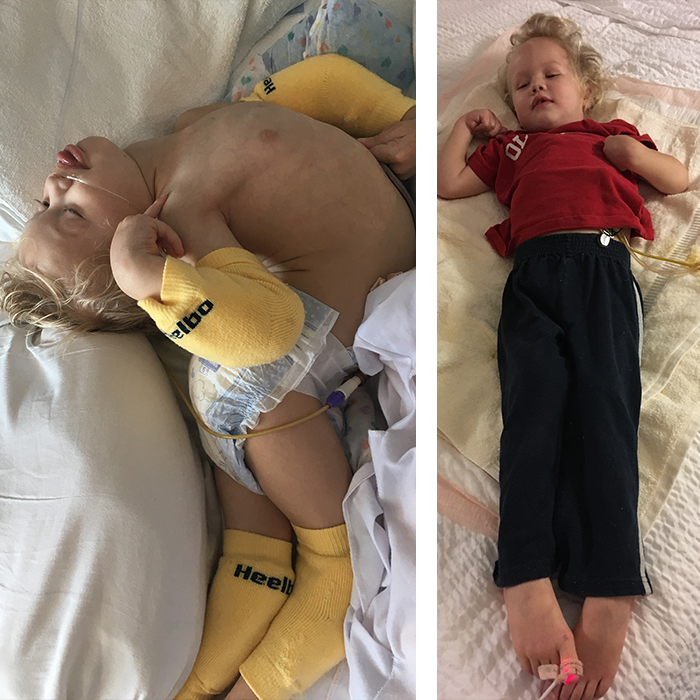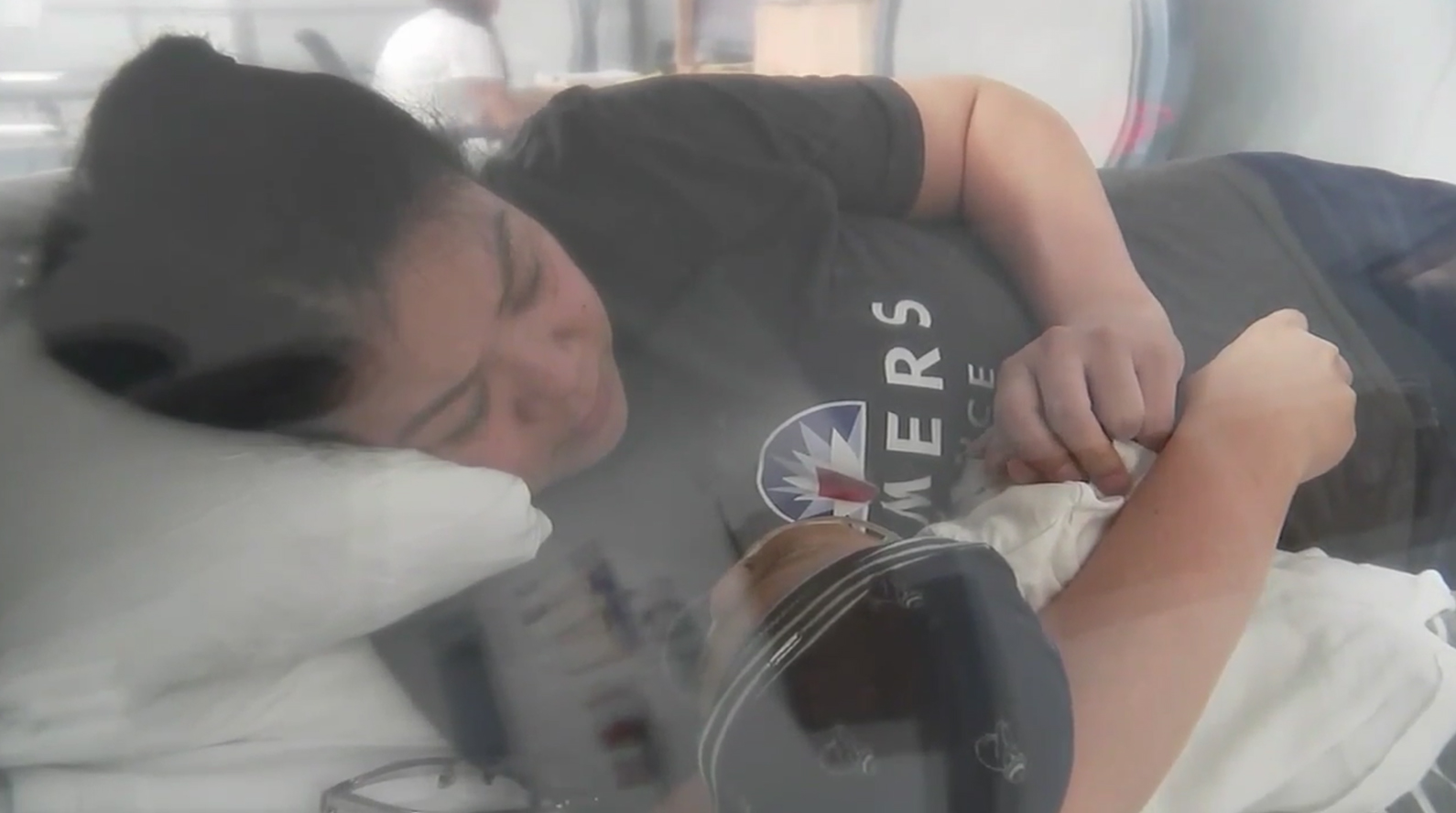Preliminary Report on Hyperbaric Oxygen Treatment (HBOT) of U.S. Military Veterans with Traumatic Brain Injury (TBI) and Post-Traumatic Stress Disorder (PTSD): The LSU IRB #7051 Pilot Trial
Paul G. Harch 1, Susan R. Andrews1, Edward Fogarty2, Juliette Lucarini1, Claire Aubrey1, Paul K. Staab1, Keith W. Van Meter1 1Louisiana State University School of Medicine, United States, 2University of North Dakota School of Medicine, United States
The preliminary data from the LSU IRB #7051 TBI/PTSD HBOT Pilot Trial of Hyperbaric oxygen therapy in blast-induced chronic traumatic brain injury (TBI) and post-traumatic stress disorder (PTSD) represents the first organized body of information that suggests a significant treatment effect on the conditions that present the greatest challenge to the integrity of our armed forces. The Rand Report of 1/2008 indicated that X% of our military that have served in Iraq and Afghanistan have been injured or affected by TBI or PTSD. Traditional treatment is protracted counseling and unapproved use of psychoactive drugs that have significant side effects such as increased suicide rates. Epidemic suicide rates in veterans are consistent with the use of such medications. In this seminal report at the 8th World Congress on Brain Injury Harch and colleagues from LSU School of Medicine, New Orleans demonstrated significant improvements in cognition, symptoms, and quality of life in 15 U.S. veterans with TBI and PTSD an average 3 years after their injury.
The physicians and researchers showed that with 4 weeks of treatment using a low dose of hyperbaric oxygen therapy, a treatment used for nearly 100 years in divers and 50 years for wounds, they were able to treat these wounds in the brains of injured U.S. servicemen. Specifically, the veterans achieved improvements in memory, concentration, executive function, and quality of life, and a reduction in headaches, concussion symptoms, depression, and anxiety. The average veteran experienced an increase in IQ of 15 points, a nearly 35 percentile increase. Other cognitive changes averaged 25 percentile point increases while quality of life measures, concussion symptoms, depression and anxiety indices, and the veterans’ estimates of their cognitive, physical, and emotional improvements improved by 30-90%. Surprisingly, the veterans showed a 30% reduction in PTSD symptoms. While the study did not include a control group, the magnitude of the improvement measured was striking and never before reported in the medical literature. Moreover, the data was supported by functional imaging data and very similar to a previous study by Harch where HBOT improved memory and blood vessel density in an animal model of traumatic brain injury. Equally importantly, in both the case reports and the LSU pilot study there were no significant side effects to the treatment. The scientific report at the International Brain Injury Association’s 8th World Congress reaffirmed earlier published peer-reviewed case reports of Harch and USAF Col. Jim Wright on brain injured U.S. servicemen.
The implication of this preliminary study is that U.S. veterans with the same conditions can safely begin treatment with this established modality, HBOT, by physician direction privately or under a national program approved by Western Institutional Review Board. This program, the National Brain Injury Recovery and Rehabilitation Project (N-BIRR) will incorporate the latest statistical design methodology that is favored by the FDA, the Bayesian Method, to accumulate further scientific proof of HBOT treatment for these two diagnoses. The program will consist of delivery of the same Harch HBOT protocol in one or two blocks; there will be no placebo group. The researchers hope to see this larger trial confirm the exciting preliminary results of the LSU pilot trial and the case reports.
Hyperbaric Oxygen Therapy Treatment of Chronic Mild-Moderate Blast-Induced Traumatic Brain Injury/Post-Concussion Syndrome with Post Traumatic Stress Disorder: Pilot Trial
LSU IRB #7051 TBI/PTSD HBOT Pilot Objectives
Mild-moderate blast-induced traumatic brain injury (TBI) and post-traumatic stress disorder (PTSD) affect 11-28% and 13-17%, respectively, of U.S. combat troops returning from Iraq and Afghanistan. Protracted treatment for PTSD exists, but there is no effective treatment for the post-concussion syndrome (PCS) of mild-moderate TBI nor the combined diagnoses of PCS and PTSD. Based on previous case experience with PCS and an animal model we investigated the effect of hyperbaric oxygen therapy (HBOT 1.5) on symptoms, cognition, and SPECT scan brain blood flow in military veterans with blast-induced TBI/PCS with/without PTSD.
LSU IRB #7051 TBI/PTSD HBOT Pilot Method Using U.S. Wounded Warriors
Fifteen symptomatic U.S. military veterans with PCS(2) blast injury to the head or PCS/PTSD(13), diagnosed by military and/or civilian neuropsychologists and neurologists, who were average:
- 29.7 years old (21-45),
- 2.6 years (1.24-4.75) post injury,
- 1 minute 13 subjects; 2 subjects 4.5 & 9h loss of consciousness
- 3 with traumatic brain blast injury (1-8) completed the study.
All subjects completed cognitive testing, symptom and quality of life questionnaires, and affective measures pre and immediately post a course of forty bid, 5d/week, 1.5ATA/60 minute hyperbaric oxygen therapy treatments (HBOT). Subjects underwent SPECT scan brain blood flow imaging (Picker Prism 3000, 25mCi Ethyl Cysteinate Dimer) pre and post a single HBOT and post 40 HBOT’s. SPECT scan was analyzed with Osirix software; relative standard deviation of the mean on a histogram analysis of counts in left centrum semiovale region of interest was taken pre/post Rx. Paired Student t test and Wilcoxon Signed-Ranks test (non-normally distributed data) were used for all cognitive/questionnaires.
LSU IRB #7051 TBI/PTSD HBOT Pilot Results
All subjects reported symptomatic improvement in the 35 day study period. Pre, post, difference, confidence interval, and p values for cognitive tests and questionnaires were:
- FSIQ: 95.8+/-8.4; 110.6+/-10.3, 14.8+/-7.4, 10.7-18.9, <0.001;
- Wechsler Memory Scale (WMS) IV delayed memory: 97.7+/-13.3, 106.9+/-15.4, 9.2+/-14.3, 1.3-17.1, =0.026;
- WMS Working Memory: 97.0+/-13.6, 106.9+/-13.1, 9.9+/-10.3, 4.1-15.6, =0.003(np);
- Stroop Color/Word: 84.3+/-12.2, 95.3+/-12.8, 11.1+/-9.2, 6.0-16.2, <0.001;
- TOVA variability: 64.4+/-28.7, 75.3+/-24.6, 10.9+/-20.2, -0.2-22.1, =0.045(np);
- Rivermead Post Concussion Symptom Questionnaire: 39.7+/-6.0, 24.1+/-12.6, -15.6+/-12.8, -22.7-(-8.5), =0.002(np);
- PTSD Checklist Military: 67.4+/-10.5, 47.1+/-16.0, -20.3+/-18.2, -30.4-(-10.2), <0.001;
- Modified Perceived Quality of Life: 81+/-37, 114+/-36, 33+/-36, 13-53, =0.003;
- Personal Health Questionnaire 9-Depression Index: 16.6+/-4.9, 8.2+/-4.7, -8.4+/-7.4, -12.5-(-4.3), <0.001;
- GAD-7 Anxiety Rating: 12.7+/-5.8, 7.9+/-5.3, -4.8+/-5.8, -8.0-(-1.6), =0.007;
- Percent Back to Normal:
- [Cognitive: 49.6+/-17.6, 67.0+/-19.4, 17.4+/-17, 7.5-27.2, =0.002],
- [Physical: 46.8+/-23.0, 66.3+/-18.6, 19.5+/-16, 10.3-28.7, <0.001],
- [Emotional: 32.5+/-20.6, 61.3+/-19.8, 28.8+/-20.9, 16.7-40.9, <0.001].
SPECT scan analysis on the first 5 subjects showed a reduction in the standard deviation of the mean on counts in the left centrum which corresponded to a pattern shift from heterogeneity (abnormal) to homogeneity (more normal).
LSU IRB #7051 TBI/PTSD HBOT Pilot Conclusions
A thirty day progression of forty 1.5 ATA HBOT treatments demonstrated significant symptomatic, cognitive, and affective improvements in 15 U.S. military veterans with chronic blast-induced post-concussion syndrome and post-traumatic stress disorder. These findings were reinforced by quantitative and qualitative SPECT scan improvements.


